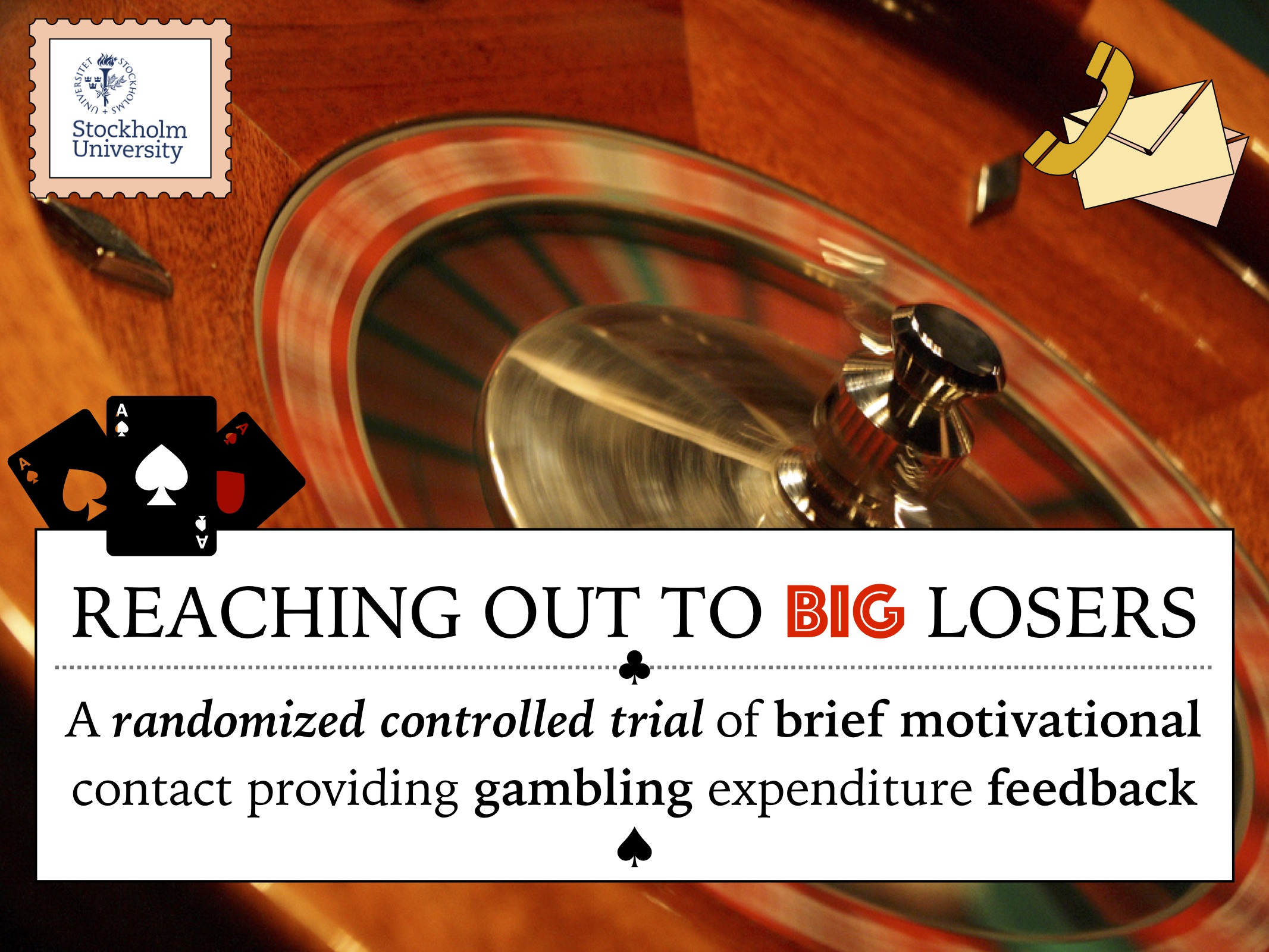Gambling disorder is a public health issue in many countries, and expectations that the gambling industry protects individuals from harm are increasing. The primary objective of this study was to investigate the effects of providing personalized feedback on gambling intensity among high consumers of venue-based and online gambling in Norway. A randomized controlled trial design was used to evaluate how behavioral feedback by telephone or letters sent via surface mail affects subsequent gambling expenditure and use of responsible gambling tools and whether a follow-up contact increases the effect. Gambling expenditure, the primary outcome, was measured using theoretical loss, which is the actual cost to the player, adjusted for the house advantage. From the top .5% of customers based upon annual expenditure, a sample of 1,003 statistical triplets, matched on sex, age, and net losses, were randomly assigned to the feedback intervention by telephone, letter, or a no-contact control condition. Participants assigned to the phone call or letter were also randomly assigned to receive or not receive a subsequent follow-up contact.
“My name is XX, and I am calling from Norsk Tipping. Am I talking to [first and last names]? Right now we have a campaign contacting our customers who lost the most money in the past year. You are one of them. Is this a convenient time for you to speak?”
The results showed that over 12 weeks, theoretical loss decreased 29% for the phone and 15% for the letter conditions, compared with 3% for the control group. A positive effect of the follow-up contact was limited to participants who at the initial call indicated an interest in receiving a follow-up call. Contacting high consumers about their gambling expenditure appears to be an effective method for gambling companies to meet their duty to care for customers.
Image credit: Pinelopi Choundri
Read the full paper:
Jonsson, J., Hodgins, D. C., Munck, I., & Carlbring, P. (2019). Reaching out to big losers: A randomized controlled trial of brief motivational contact providing gambling expenditure feedback. Psychology of Addictive Behaviors, 33(3), 179-189. doi:10.1037/adb0000447
